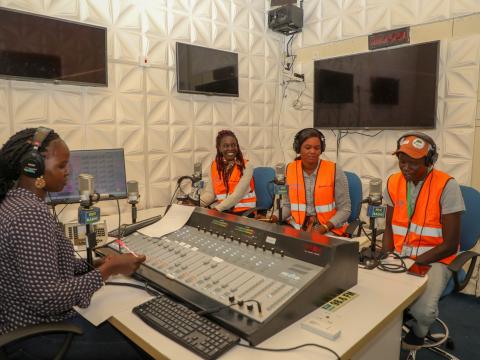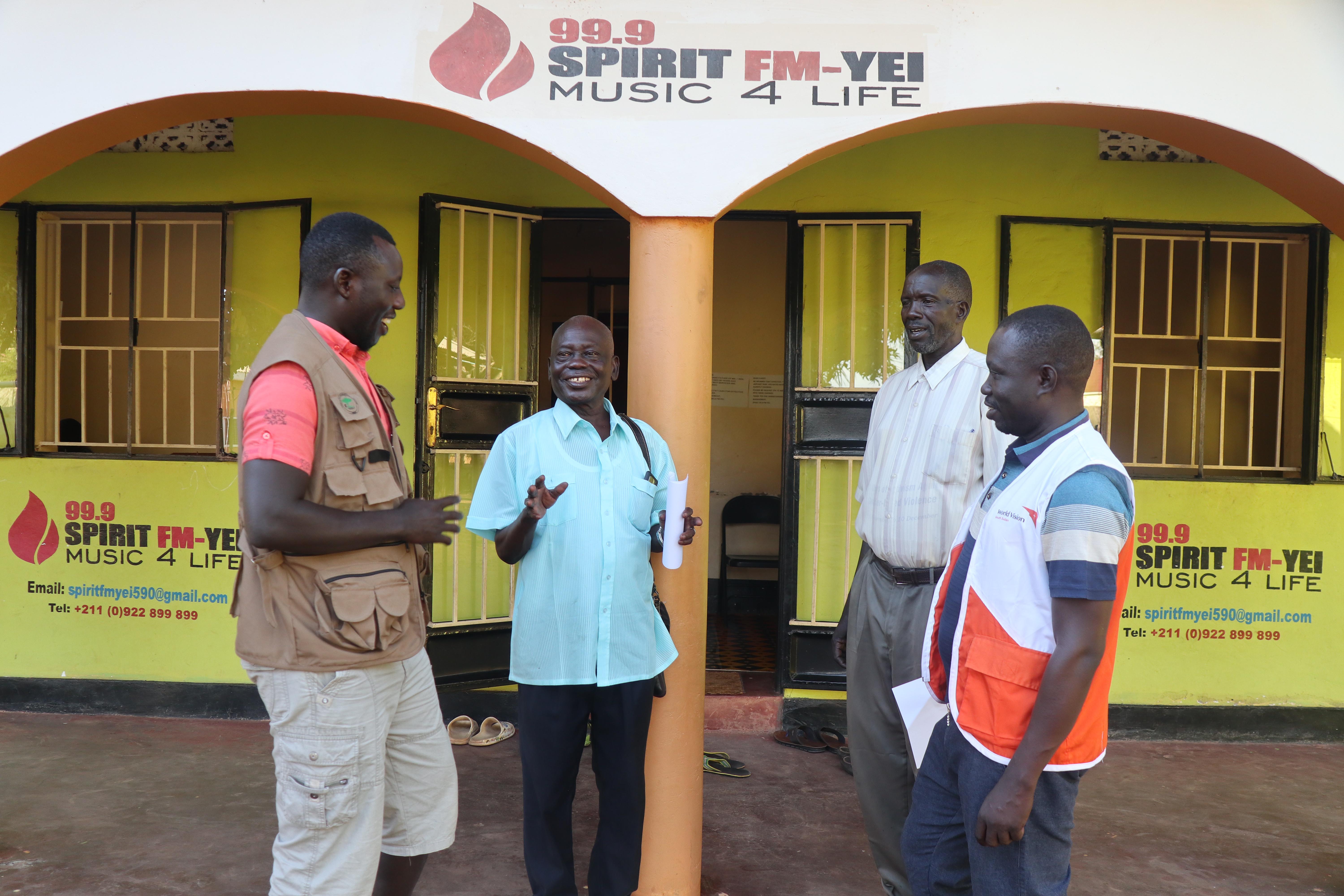Local radio stations tapped to promote COVID-19 vaccinations in hard-to-reach areas in South Sudan

Effectively communicating risks and engaging with communities help save lives. In many hard-to-reach areas in South Sudan, communities rely on radios to get information. World Vision’s managed CORE Group Project engages with local radio stations to fight against misinformation and promote correct information about vaccines.
From the start of the COVID-19 vaccination, communities, especially in South Sudan, have been hesitant to take their jabs of the COVID-19 vaccine due to issues related to myths and misconceptions such as infertility, religious beliefs, misinformation, lack of information about the vaccines in remote and hard to reach areas that have hindered them from freely taking the vaccine to boost their immunity against the coronavirus.
South Sudan remains one of the East African countries with the lowest number of people vaccinated, with 4,026,599 individuals fully vaccinated as of April 6, 2023. Thanks to UNICEF for funding the national COVID-19 vaccination campaign, which reached 43.74% of the persons vaccinated between December 2022 and March 2023.
As an implementing partner of the national COVID-19 vaccination campaign World Vision’s managed CORE Group Partners Project (CGPP) was actively involved in radio talk shows, as they remain among the most preferred medium of communication in South Sudan. Shows aired on local radios can reach more people, especially the marginalized people such as the internally displaced people, nomads, and people with special needs, in the hard-to-reach areas in 25 counties of Eastern, Western, and Central Equatoria States, including Renk and Melut in Upper Nile State.

During a recent radio talk show on Eye Radio, one of the callers, Daniel, thanked the program's moderators for the information. “I only trust what I hear from the radio. Please tell us if the COVID-19 virus is from God, and if so, will he take it away from the universe? He adds that there is a need for the government to do something to save its citizens from dying.”
“Like all other dangerous diseases, vaccination is the most effective way of protecting people from COVID-19. Therefore, the Ministry of Health, with health partners conducting the national COVID-19 campaign, aims to reach as many people as possible because it is the government’s mandate to save its citizens from dangerous pandemics like COVID-19, Ebolavirus disease, cholera, and others,” says Amule Nickson, the project officer for Juba County.
We believe that many people are listening to radio stations, especially the ones in hard-to-reach locations without access to newspapers and televisions. We do not want anyone to be left out during the campaign.
“We believe that many people are listening to radio stations, especially the ones in hard-to-reach locations without access to newspapers and televisions. We do not want anyone to be left out during the campaign,” he adds.
A United Nations Educational, Scientific and Cultural Organization report noted, “Radio is a powerful medium for celebrating humanity in all its diversity and constitutes a platform for democratic discourse. Its unique ability to reach out to the widest audience means radio can shape a society’s experience of diversity. It stands as an arena for all voices to speak out, be represented, and be heard.”
With funding from the United Nations Children’s Fund and support from the Ministry of Health, World Vision and other health partners have held a series of radio talk shows on local radio stations such as Eye Radio, Sama FM, Capital FM, Spirit FM in Yei, to create demand and awareness about the COVID-19 vaccines.

Another concerned citizen, Abdul, from Wau County in Western Bahr-el Ghazel State, inquired if the campaign was in all parts of the country and where he could get his jab. In response, Bibiyana, a supervisor from the State Ministry of Health who was part of the team during the talk show, said, “With the current vaccination campaign, vaccines can be got from all health facilities, outreaches, mobile sessions, and during campaigns such as this one.”
According to the Ministry of Health, South Sudan has received close to 6 million doses of COVID-19 vaccines since March 2021 from the COVAX facility and other countries. Of this number, 68.34% of the vaccines are consumed to date.
Anthony Kisanga, the CGPP Director in South Sudan, says, “Vaccine hesitancies have hampered COVID-19 vaccine uptake. However, through the support from UNICEF, CGPP was able to put up very robust risk communication and community engagement strategies using multiple channels to get authentic and credible information to the most vulnerable in the communities. This and other channels had drastically reduced vaccine hesitancy in CGPP operation areas with over 50% of females vaccinated up from 23.7% in the first six months when COVID-19 vaccination was introduced in South Sudan.”
Story and photos by Jemima Tumalu, World Vision South Sudan and CGPP Communications Officer